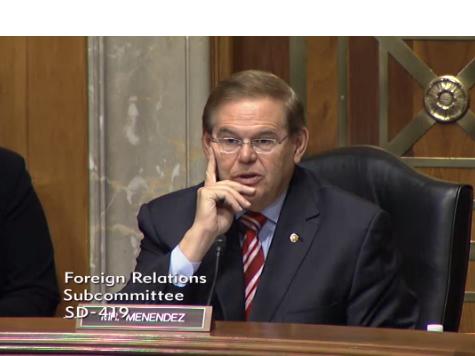
“What are we willing to do,” Menendez asked the official, to let the Dominican Republic know that it “cannot go ahead with impunity . . . and violate” contracts with companies that are American owned, and perhaps in particular a port security contract for, among other things X-Raying port cargo, that could be worth $500 million over the next ten years with ICSSI, a Dominican company controlled since 2011 by his friend and major contributor, Dr. Salomon Melgen of Palm Beach, Florida. Dr. Melgen is a native of the Dominican Republic and is implicated as a key player in the ongoing scandal surrounding Senator Menendez.
Two weeks later, on August 15, 2012 a Dominican commission established by Dominican Republic President Leonel Fernandez, another friend of Dr. Melgen, issued a report containing recommendations highly favorable to Melgen’s ICSSI. Questions remain as to the legal authority of the commission’s recommendations, since the ICSSI contract with the Dominican government has been tied up in litigation since 2004, and the case has yet to receive a final judicial determination.
Statements and Questions of Senator Menendez in the July 31, 2012 Senate Hearings:
Though Senator Menendez did not mention the name of ICSSI, the Dominican company 50% owned by Dr. Melgen, at the July 31, 2012 Senate subcommittee hearing he chaired, the Senator almost certainly asked Deputy Assistant Secretary of State for Economic Affairs in the Western Hemisphere Matthew Rooney to intervene with the government of the Dominican Republic on its behalf. Menendez presented the situation as one in which an American company enters into a contract with the Dominican government, which then fails to honor the terms of that contract (Beginning at the 1:03:50 mark):
Senator Menendez: You have another company that has American investors that is seeking to — has a contract actually given to it by the Dominican Congress–ratified by the Dominican Congress to do X-rays of all of the cargo that goes through the ports, which have been problematic and for which in the past narcotics have been included in those cargo. And they don’t want to live by that contract either. You have you know some of the other countries that I have mentioned today with arbitration awards that have gone against them, and yet they don’t want to live by that. Well, what are we willing to do?
Menendez then pressured Deputy Assistant Secretary Rooney to specifically “send a message” to the government of the Dominican Republic that it “cannot with impunity go ahead and violate” agreements with American companies such as the unnamed ICSSI with its port contract that “they don’t want to live by.”:
Senator Menendez: Maybe Mr. Secretary this might be more of your bailiwick, but what are we willing to do with our directors at the IDB-IMF and other entities because it just seems to me that if you do not send a message that you cannot with impunity go ahead and violate those agreements, trade agreements and arbitration awards, which you agreed to as a process and then still have us voting for you to get monies for a variety of purposes. Then, you know what? If those countries can get away with that they will, and that puts American companies at a tremendous disadvantage.
Deputy Assistant Secretary Rooney: Thank you Senator I think without specific reference to the Dominican Republic but in other cases we have in fact done that. In Argentina …
Senator Menendez: Well then I hope you’re going to look at the Dominican Republic. We’re happy to provide you with that information.
It is telling that Sen. Menendez cut off an answer concerning Argentina to turn the discussion back to the Dominican Republic. The Dominican Republic’s economy is about half the size of Kansas City, MO’s economy. It ought not to be a major focus of a Senate subcommittee.
In his questioning, Senator Menendez appears to be referencing the specifics of the ICSSI contract, since he noted that the contract was “ratified by the Dominican Congress to do X-rays of all the cargo that goes through the ports.” What Senator Menendez failed to tell Deputy Assistant Secretary Rooney is that though the 2002 contract was ratified by the Dominican Congress, that act was allegedly forced by the heavy hand of then President Hipolito Mejia who may well have been aware that ICSSI was not the company the Dominican Congress understood to be receiving the contract. In addition, the terms of the contract were considered so questionable that when a new administration came to power in 2004, the customs director–Miguel Cocco–filed a lawsuit in Dominican courts to have it annulled.
That suit is still pending.

COMMENTS
Please let us know if you're having issues with commenting.